Let’s admit it. When it comes to reproduction, women don’t have it easy!
PMS and period pains are a challenge for most women. Childbirth can also be difficult and painful. Women have to deal with a lot when they are young.
And if that wasn’t enough, menopause comes along in later years to provide one more frustration!
Women and the Menopause
A handful of women go through menopause with few or little problems. They are lucky. For many, the emotional and physical consequences of menopause can be significant.
Sometimes, the only help available is hormone replacement therapy (HRT). But HRT is not without its own concerns, such as the increased risk of some cancers associated with it.
Many women have discovered a simple way of handling their problems. Herbal therapies offer a natural alternative to HRT. For centuries, herbs have been used to alleviate some of the common symptoms experienced by menopausal women.
In this article we look at how herbal supplements are helping many women cope with the effects of menopause.
All of these herbal remedies are natural and easy to use. They could help you to start to relax and enjoy life again!
Hot Flushes and Night Sweats
Ever experienced a hot flush? A lot of ladies struggle with hot flushes during menopause.
For many women a hot flush makes them feel like they are on fire. They feel hot, very hot! The heat is often in one place, mainly low down on your chest or body. The heat spreads itself like a blanket up and down your body and head. Red blotches and sweating are common. And your heart will feel like it’s racing.
Sleeping Problems
Problems getting your head down at night are often caused by night sweats, which are really just hot flushes during sleep. Anxiety over going through the menopause can sometimes be a contributing factor.
Evening Primrose Oil can be a general tonic for women’s reproductive health. This essential oil has a cooling effect on the skin and regulates the production of oestrogen. It can be a great aid to sleep due to its high gamma linolenic acid count (GLA), and increased prostaglandin production.
Dryness, Itching and Painful Intercourse
Another common problem, experienced by one third of menopausal women. Dryness during intercourse can be helped by using a lubricating gel. This compensates for the lack of natural lubrication. Black Cohosh is a popularly used herb that is believed to relieve these symptoms.
When it comes to vaginal dryness and painful intercourse, consistency is key. Don’t just take Black Cohosh sporadically – make it part of your daily routine. Many women find lubricating gels provide temporary relief, but an herbal supplement gets to the root of the problem by addressing your body’s shifting hormone levels. Why not combine Black Cohosh with Evening Primrose Oil? The cooling effects of the primrose will complement the hormone-regulating properties of the cohosh. Be patient though – you may need to take the herbs for a few months before really noticing the benefits. Small lifestyle tweaks like this can make a huge difference.
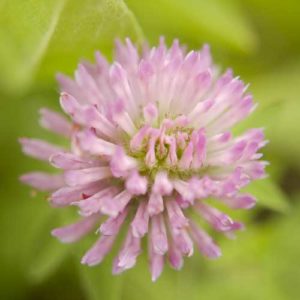
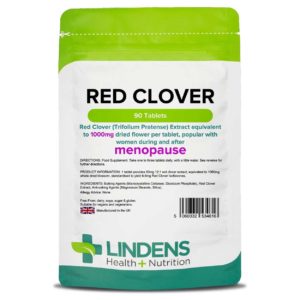
Wonder Herb Nr 1 – Red Clover
Red Clover (Trifolium pretense) is a herb that is found in meadows, slopes and on grasslands. Studies show that many of the discomforts plaguing menopausal women can often be greatly reduced with a daily intake of red clover extract.
Red Clover contains high levels of isoflavones, which have been shown to help reduce the intensity and frequency of hot flashes. A study in Denmark showed that women who took the extract had the number of hot flushes reduced by a third. The hot flushes were also less intense, which meant that they felt better during the day and could sleep more soundly at night.
Additionally, red clover has been found to help with other menopause-related symptoms such as vaginal dryness, mood swings, and osteoporosis. Isoflavones in red clover can also help with cardiovascular health, as they have been found to lower levels of bad cholesterol in the blood.
As an addition to the daily diet, take 1 to 3 Red Clover tablets each day. (1000mg Tablet)
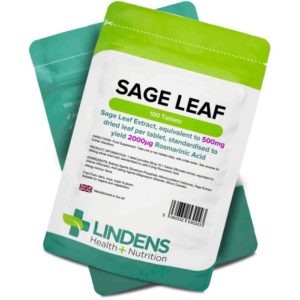
Wonder Herb Nr 2 – Sage Leaf
Sage Leaf is a herb that is commonly used in herbal medicine. It is also a cooking spice. The word “sage” comes from the Latin, salvere, which means “to save.”
Since ancient times, women have used sage to help combat painful menstrual periods and to reduce hot flushes during menopause. Besides providing hot flush relief, sage can also help with digestion and headaches.
Sage Leaf is also known for its ability to improve memory and cognitive function. In fact, it has been used for centuries to help with mental clarity and focus. Studies have shown that sage helps to improve brain function by increasing the levels of certain neurotransmitters in the brain.
For menopause relief, take 1 or 2 sage tablets daily with a little water. (500mg Tablet).
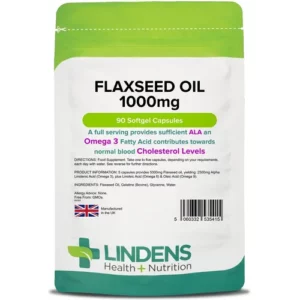
Wonder Herb Nr 3 – Flaxseed Oil
Flax is a plant that grows throughout North America and Europe. The seed of the flax plant is also known as linseed.
Flaxseed contains soluble fibre omega-3 fatty acids, and lignans (naturally occurring chemicals with oestrogen like effects). This makes it a particularly promising treatment for menopause symptoms
Flaxseed also seems to have some anti-oestrogen qualities that could lower the chances of breast cancer. Omega 3 fatty acids are also known to be protective against heart disease.
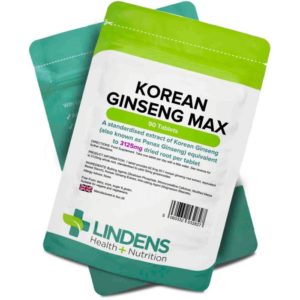
Wonder Herb Nr 4 – Ginseng Root
Little is known about Ginseng’s effects on menopause. Some women report an easing of symptoms after regularly taking Ginseng.
Some researchers believe that the Ginseng Root contains phytoestrogens. These compounds contain a similar molecular structure to oestrogen. For this reason, some scientists believe that the plant can help replace declining oestrogen levels in menopausal women. This means less symptoms for some women. Whether or not this is the case remains to be confirmed by further research.
Aside from its potential effects on menopause, Ginseng Root is a well-known adaptogen. This means that it helps the body cope with stress. Additionally, it has been shown to improve mental clarity and focus. These benefits make it a popular supplement for those looking to boost their energy levels and concentration.
There are several forms of Ginseng Root available, including raw, dried, and powdered. Some people prefer to take it in supplement form, while others enjoy it as a tea. It is important to note that Ginseng Root can interact with certain medications, so it is recommended to speak with a healthcare provider before adding it to your routine.
Using Herbal Supplements
You should always check with your doctor about whether it is safe for you to take herbal supplements given your own personal health and background. For instance, black cohosh should absolutely not be taken at the same time as standard HRT.
What to do next?
If you want to try a herbal supplement but are not sure which to try, just choose one and try it for a month and see how you get on with it. If that herb doesn’t work, try another. Do not be afraid to experiment. All women are different and what works for one woman may not work for another.
Have a go and try out some of these natural remedies. You never know, one might just work for you!
Photo “Menopause” by Anthony Cunningham for Zoom Health
Inset Photo Credit: “Trifolium pratense RED CLOVER” (CC BY-SA 2.0) by gmayfield10
Zoom Health is a leading UK supplier of Home Health Tests and Earplugs





